Think of this as Volume 12, Number 30 of A-Clue.com, the online newsletter I've written since 1997. Enjoy.
NOTE: The arrest and subsequent consequence of Henry Louis Gates resulted in this remembrance. I hope you enjoy it. If you don't I hope it makes you think.
When the subject comes up their first response is usually "I'm not a racist," sometimes "I don't have a racist bone in my body."
When you press (and sometimes when you don't) comes the "but," usually followed by some justification for why the other group is inferior, or rude, or pushy, or uppity, or something irretrievably bad.
It's not me, you see — it's them. It's the other. My hate is their fault.
We all have an other. All of us. Race and sex are easy others. Religion is an easy other. If race isn't available, an ethnic or tribal difference will do. Who you love can make you the other, and so can your economic class.
But race is the easy one. Race is traditional. Race is American.
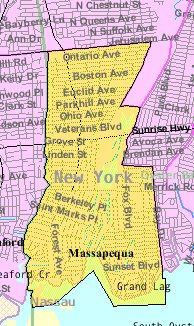
I'm European, German-Irish. White. I grew up in Massapequa, a suburb so well-known for its racism and insularity that it eventually became a punchline, the fictional hometown of cops in "Law & Order," and of Kate McCoy, who blurts it out at the end of "Kate & Leopold."
Massapequa's racism is steeped in the economics of Long Island real estate.
When blacks moved into Long Island's suburbs, agents used racism to scare away other whites, and once prices started falling they turned over everything else. It happened in Hempstead, in Roosevelt, and in other places.
Massapequa was determined not to be next. When Benjamin Spock (and others) tried to move a black family in around 1970, a KKK cross was burned on the lawn.
I had never known a black person when I went to Rice University. The first ones I 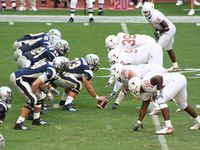
All this taught me an important lesson. People are people, but if you move in among the "wrong" people you can save yourself a ton of money.
So it was that, a year after arriving in Atlanta as a junior reporter, married to a struggling computer programmer, I began house-hunting and found the place I still live in. Just five miles from the center of town, right next to a subway line, a sidewalk out front with a porch swing, an attractive Craftsman-style bungalow with a granite fireplace.
And a price of $49,500.
I learned that were this house across the street from where it is, it would have cost $10,000 more. Place it directly across the tracks, on the "white" side, and add another $10,000. Place it diagonally across the tracks, in the white part of another city, and add another $10,000. But I could afford $49,500, not $79,500, and so we moved in.
And for many years, that gap in value grew. It's still there. Were my house across the street in Decatur, Georgia it would be worth $50,000 more than it is.
This is where I learned the great lesson of my life. My new neighbors were nearly all black, but they were also quite saintly. They were part of black America's "greatest generation," the men and women who had marched behind Dr. King, the ones with whom he struggled and for whom he died. They were all determined to use the gifts of equality to raise their families up. By and large they succeeded.
I met a man whose father had been a slave. I met another whose sole ambition had been the life my own father resented, and who had led the struggle in DeKalb County, at risk to his life. I met a woman who could perform the miracle of the loaves and fishes, and did so before my eyes. I met a man who lived like Jesus, complete with the carpentry, and a family that had raised 10 children, some of them adopted, in a home smaller than my own.
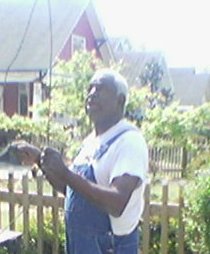
They kept up their lawns, they maintained their homes with precision and style. They raised children who brought their own children to visit each Sunday, so that the road was filled with cars and laughter and the sound of meat grilling. And when they were finishing their race, when they could no longer stay on my street, those children took them in, to suburban mansions with Mercedes' in the driveway and lives filled with the honors they were due.
They weren't all saints. Some families fought. Some men were selfish. Some women were shrews. We even had a case of child abuse. Some could not handle their children and watched them fall to the temptations around them. But even these people had neighbors and churches and the Lord Jesus Christ to comfort them.
I believe, still, that nearly all were better than me. They were better at handling adversity. They got more enjoyment from their prosperity. They were better Christians.

The point is that you really can't know anyone until you take the time to know them, and this is takes time.
I was lucky. Most people, white and black, still aren't as lucky as I was. Even in my own neighborhood of Kirkwood, there are black and white neighbors who don't know each other. And so they carry the old suspicions I grew up with. They are loyal to their race, their religion, their tribe. Those with power see someone without, someone not of their tribe, and their natural inclination remains.
What we can learn from this is something I learned early on in my journalism career. I learned there that you can't be unbiased, that there is no such thing. What you can do, however, is know your biases, accept them, and spend your work days leaning against them, trying not to be unbiased but to be fair.
That's all affirmative action is, really, an attempt to institutionalize this leaning against bias. To those who see everything as a zero-sum game, of course, this is reverse-racism, it is racism itself. Each position of power held by a black or latina is one less position held by a white man — never mind how the number of such high positions has grown with the economy. Unless all the marbles are held by your tribe, by people of your color, it's not right to some people, no matter how many marbles there may be.
I feel sorry for such people. And here in the South we have a name for them.
We call them Republicans.
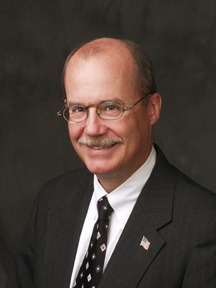
They live lives of quiet desperation in those cul de sacs north of Atlanta, or in the suburbs of cities like Savannah. They huddle in fear around their TVs, turned always to Fox, and stand ready to have their fears manipulated 24-7 by those whose tribe they no longer belong to, by those with real fame or incredible fortune, people who are even more isolated than they are.
Racism is not easy. Being a racist is hard. You have to live in fear every day, and so much of the fear is irrational. When, if you had just met some of the people I've known, you could be so changed. You might still have racist bones in your body, but you might learn to lean against that a little, long enough to lean over and shake a neighbor's hand.
You might learn something. You might get a Clue.



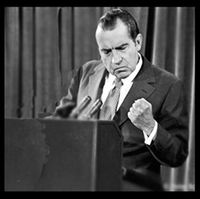








this was actually a decent write up about not judging entire groups based on a subset blahblahblah until you trotted out the republican bit. way to undermine an otherwise interesting write up. oh, well. nothing gold can last.
this was actually a decent write up about not judging entire groups based on a subset blahblahblah until you trotted out the republican bit. way to undermine an otherwise interesting write up. oh, well. nothing gold can last.
Great piece, Dana. More of this from all quarters and we’d be getting somewhere.
Part of my family is from the Charleston, SC area, and family legend is that they were slave owners. I did some research to see if it were true. It was, but it was only just the beginning.
I learned that most people like me – descendants of slave owners have a very high likelihood of being related by blood to descendants of slaves. The Jefferson-Hemming experience is NOT uncommon.
The link below is to a program at Eastern Mennonite Univ up in VA. It was started by more progressive members of the Jefferson/Hemming clan as a direct response to the less-than-friendly, genetically-proven first unified family reunion. Apparently, there was some level of ugliness.
So the willing parties started Coming to the Table, a program for new found relatives to get themselves together. There’s no real program – each family does what it thinks is best.
I haven’t yet found any black relatives, but I don’t rule out the possibility.
Thanks again for a great essay. Cheers.
http://www.emu.edu/cjp/comingtothetable/index.html
Great piece, Dana. More of this from all quarters and we’d be getting somewhere.
Part of my family is from the Charleston, SC area, and family legend is that they were slave owners. I did some research to see if it were true. It was, but it was only just the beginning.
I learned that most people like me – descendants of slave owners have a very high likelihood of being related by blood to descendants of slaves. The Jefferson-Hemming experience is NOT uncommon.
The link below is to a program at Eastern Mennonite Univ up in VA. It was started by more progressive members of the Jefferson/Hemming clan as a direct response to the less-than-friendly, genetically-proven first unified family reunion. Apparently, there was some level of ugliness.
So the willing parties started Coming to the Table, a program for new found relatives to get themselves together. There’s no real program – each family does what it thinks is best.
I haven’t yet found any black relatives, but I don’t rule out the possibility.
Thanks again for a great essay. Cheers.
http://www.emu.edu/cjp/comingtothetable/index.html
I’m sure you’ll find some. Have you tried contacting black folks with the same last name as yours? If Al Sharpton can be related to Strom Thurmond anything is possible.
Thanks for writing.
I’m sure you’ll find some. Have you tried contacting black folks with the same last name as yours? If Al Sharpton can be related to Strom Thurmond anything is possible.
Thanks for writing.
I said southern Republicans. And I stand by that. I have never met a Republican from the South who didn’t claim he wasn’t a racist, until you got into issues and learned they were.
Maybe you are. And you missed the point. The first step toward becoming non-racist is to admit that’s impossible.
Know any Republicans who admit that? I don’t. Not in the South, anyway. Getting harder to find them in the north.
Dana
I said southern Republicans. And I stand by that. I have never met a Republican from the South who didn’t claim he wasn’t a racist, until you got into issues and learned they were.
Maybe you are. And you missed the point. The first step toward becoming non-racist is to admit that’s impossible.
Know any Republicans who admit that? I don’t. Not in the South, anyway. Getting harder to find them in the north.
Dana
Jeez, let’s see. Think I can find anybody in South Carolina named Dupree? Only when I open my eyes. (Operative names are Dupree/DuPre, Laval, Satterlee and Capers.)
In all truth, there is actually a chance that the sexual liberties common in other households was not accepted in ours. The icon of the family from that period was Ellison Capers, the so-called Soldier Bishop. The book (by his son) paints him as a saintly-type slave owner who kept families intact, freed long serving slaves who would then remain in the families employ, etc. Grain of salt, eh?
It’s a fascinating work to be involved in, and I’m sure I’ll find descendants of slaves, relations or not.
Cheers.
Jeez, let’s see. Think I can find anybody in South Carolina named Dupree? Only when I open my eyes. (Operative names are Dupree/DuPre, Laval, Satterlee and Capers.)
In all truth, there is actually a chance that the sexual liberties common in other households was not accepted in ours. The icon of the family from that period was Ellison Capers, the so-called Soldier Bishop. The book (by his son) paints him as a saintly-type slave owner who kept families intact, freed long serving slaves who would then remain in the families employ, etc. Grain of salt, eh?
It’s a fascinating work to be involved in, and I’m sure I’ll find descendants of slaves, relations or not.
Cheers.